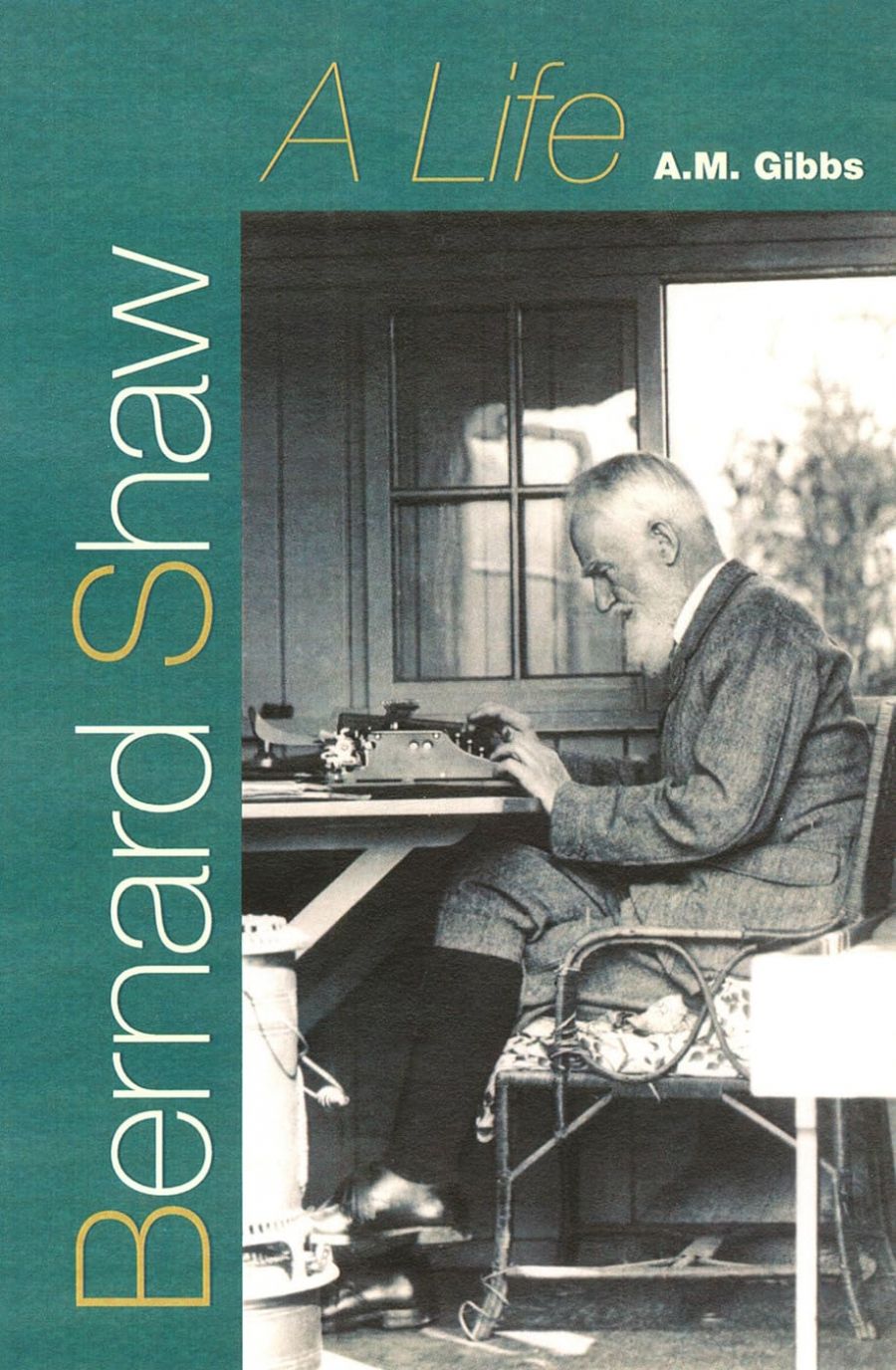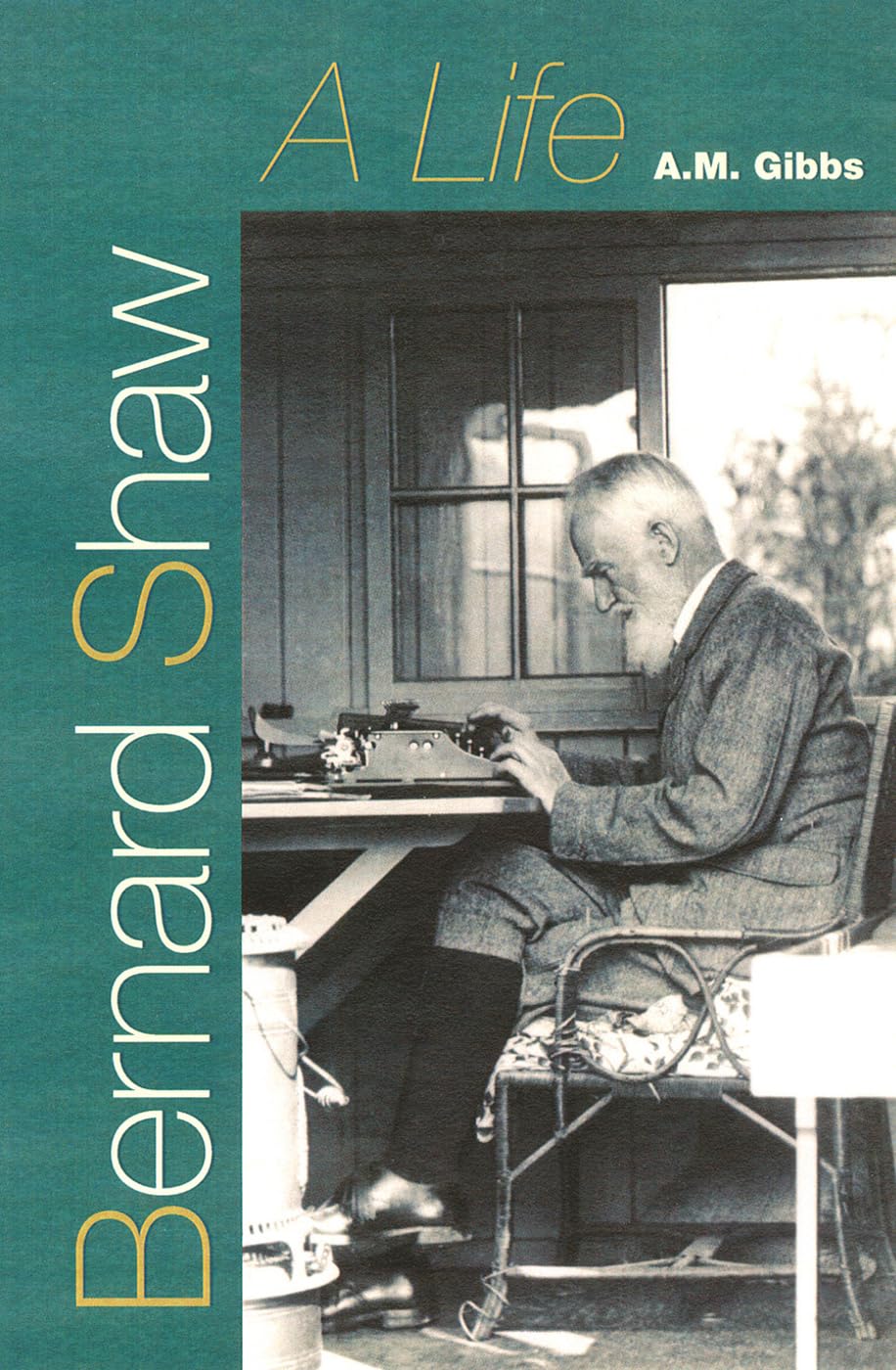
- Free Article: No
- Contents Category: Biography
- Review Article: Yes
- Article Title: GBS and decency
- Online Only: No
- Custom Highlight Text:
However respectful its intentions, literary biography invariably takes on the character of a siege, laid by oneself against another. Every biographical subject, unwittingly or not, builds fortifications to repulse such invaders, and George Bernard Shaw (1856–1950) was no exception. He did, however, adopt a characteristically sly defence. His castle was regularly open to the public. Inside, he would be on hand to guide visitors through its rooms, an amusing if distant squire, knowledgeably arguing the architectural merits of his own, not insubstantial, additions, and giving the punters their money’s-worth with polished tales of eccentricity, debt and alcoholism for each of the family portraits. He was both garrulous curator and living artefact in a museum of his own design.
- Book 1 Title: Bernard Shaw
- Book 1 Subtitle: A life
- Book 1 Biblio: UNSW Press, $59.95 hb, 554 pp
- Book 1 Cover Small (400 x 600):

- Book 1 Cover (800 x 1200):

The name of the edifice was, of course, GBS (‘the most successful of my fictions’, Shaw considered), and the besieger in this instance, A.M. Gibbs, a Shavian scholar of international reputation. Professor Gibbs’s success, for this is a fine biography, lies in the gentle cunning of his tactics. He achieves his objective not by brute force but in refusing to allow an unalloyed admiration for Shaw’s charming evasions to divert him from his task one iota. Deploying dry, measured fact, accumulated over decades of research and source-hunting, against what V.S. Pritchett called the ‘public fantasy’ so manically perpetuated by Shaw, Professor Gibbs distinguishes between the man and his self-constructions. In this Life, Gibbs is less a competing eloquence than the sympathetic surveyor of the entire Shavian complex. As a result, it is the degree to which Shaw survives eviction from the big house that constitutes the fascination of the project.
Although it might seem an obvious biographical approach – the man, rather than the work – Shaw is an exception. His work was his life: a legendary industriousness that filled his days until there seemed little room for anything as mundane as living. And the polymath range of his efforts – prefaces, reminiscences, essays, letters, feuilletons, plays, novels, tracts and pamphlets, works of dramatic, literary and musical criticism – similarly suggested that he was a plurality rather than a single individual: more a kind of general, un-differentiated brilliance. But as Clive James, a great admirer, was moved to observe, ‘the superhuman is inhuman in the end’, and much recent Shavian criticism has been given over to cutting him down to size. To understand the man is to understand the motives that drove the industry, however. If Shaw was indeed a superman, Gibbs argues, he was one impelled by all too human forces.
George Bernard Shaw, it seems, was a case of arrested gentility. Offspring of one of the grander families of the Protestant Ascendancy, he nevertheless suffered a Dublin childhood and youth of relative poverty. His father’s business failures, combined with a love of the bottle, meant that his son’s education was both erratic (he attended several different schools, each cheaper than the last) and sharply curtailed. Instead of Trinity College, there was a clerkship in a land agent’s office. The difficult and shameful circumstances of these years were to be mercilessly recalled in his late Sixteen Self Sketches (1949).
Taking the Sketches as his starting point, Gibbs’s research uncovers many factual distortions and inaccuracies. Against Shaw’s assertion that his father was an incorrigible tippler, the biographer shows that he was teetotal for more than a decade during Shaw’s childhood. Shaw’s further claims – that his parent’s marriage was loveless, and his mother incapable of affection – are belied by the discovery of some gently bantering correspondence between them, and a hitherto unknown autobiographical fragment in which his mother gleefully recalls her early musical training. Even Shaw’s crying poor is bought into question by Gibbs’s careful estimations of the size of their family home and the cost of living of the day. Material made available by an Australian branch of the Shaw family provides further confirmation of a less dramatic family background.
In convincing the reader that the experience of those early years was exaggerated, Gibbs raises the question of Shaw’s motivations for doing so. By painting his family and his own early life in the blackest hue, albeit with some comedy, Shaw was asserting his own ability to overcome adversity, but he was also taking an aristocratic tack: better his father an outright drunkard than a genial failure, or his mother a cold fish than a figure middling in her happiness. It was the petit-bourgeois elements of his upbringing that he rejected most vehemently: an impulse that potentially sheds light on the political thought of his maturity.
This same impulse was at work in his assault upon London – those famous years of struggle that were to culminate in his triumph as a critic, playwright and social reformer (the ‘most formidable man in modern letters’, according to W.B. Yeats). It is not that Shaw had hidden social ambitions: while he admitted to his sister that there remained in his make-up a residue of ‘Shaw snobbery’, that he was a scourge of the inequities and hypocrisies of late Victorian, Edwardian and Georgian Britain is not in question. Rather, it is the very lordliness of his attack upon the society of the day, and the politesse with which he transgressed its mores, that mark him as a man ineradicably of his class. When Gibbs troubles to note the purchase of Shaw’s first Jaeger suits (a GBS hallmark, made according to Dr Jaeger’s Sanitary System, in which only animal fibres are worn next to the skin), he hits the nail on the head: unconventional apparel, tailored with the utmost conventionality. The outfit, with shirt, detachable collar, and cravat, cost eleven pounds. It is minutiae like this that brings Shaw to startling life. But facts in isolation may be value-neutral, their cumulative effect may damn as well as praise. Gibbs’s success in pegging Shaw as a gent in spite of, or even because of, his avowed radicalism, has the concomitant effect of grounding him in time and place in ways that reflect negatively upon his life and work. Gibbs’s unapologetic Shavian partisanship does not lead him to presume too much upon Shaw’s essential nobility, but it sometimes means that he refrains from condemning the Shavian frailties that his research turns up. For instance, Gibbs is excellent in tracing the several full-blown affairs and many flirtatious correspondences undertaken by Shaw, but he reads what might appear to be serial toying with women’s affections as largely innocuous, old-fashioned gallantry. He does not explore the fine line between gallant and misogynist.
Similarly, a tireless cataloguing of Shaw’s literary activities calls into question the canonical stolidity of his creative oeuvre. Gibbs, by making clear Shaw’s early debts to contemporaries Pinero and Granville-Barker, reveals how far-removed Shaw could be from Ibsen and Chekhov, the true dramatic masters of the age. The weaknesses of Shaw’s plays cannot be argued away by recourse to assertions of noble sentiment or social utility. The early plays may well be, as Gibbs contends, intentionally conventional vehicles for subversive ideas, and the latter ones fantasias that abandon naturalism almost entirely, but it is difficult to argue that the aesthetic shortcomings of any of these weaker works were obviated by fine intentions or by the radical content contained within (Marvin Mudrick memorably described the plays as ‘mere rigid simulacra of intelligence on the stage’, which ‘dazed audiences into the hallucination that they were participating in a renaissance’). In the biography of a man still remembered primarily as a playwright, Shaw’s ingrained moral courage and sense of social mission is not at issue, but the varying formal quality of the creative art in which he couched them surely is.
This is not to suggest that Gibbs’s revelations of Shaw’s flaws of character or art are in themselves destructive. The opposite is true: Shaw is revealed as a man more firmly in his failures than in his successes. If Shaw’s famed chasteness and austerity was a response to the experiences of his early life, they render him as simply human as those whose very lack of these same qualities he was reacting against. That he was prone to caddishness or flirtatiousness in his relationships with women melts a little of the ice that clings to the sexless sage. And what remains of Shaw’s literary reputation after being critically shorn of his lesser creative works leaves more than enough to guarantee his enduring worth. In the course of these pages, Gibbs provides ample evidence for Shaw as the best writer on the theatre since William Hazlitt; as one of very few critics able to transmit the technical complexity of classical music in a manner both comprehensible and gripping; as a correspondent of immense verve and wit; as a political pamphleteer of unusual didactic force; and, simply, as one of the great prose stylists in the language.
Gibbs’s biographical approach does have its shortcomings. So smartly does he marshal his facts that they sometimes droop beneath the strain – you sometimes long for those anecdotal liberties taken by G.K. Chesterton or Frank Harris. But in spite of the biographical attentions already lavished upon him, few twentieth-century literary figures are as much in need of major restoration as GBS: victim as he has been both of the inflated merit accorded him during his life, and of the desuetude into which his reputation has arguably fallen since the publication of Michael Holroyd’s immense life (1988–92). Neither extreme is fair, though, and Gibbs’s biography, by hewing close to the available facts, strikes a sensible middle ground.
A parliamentary sketch writer for the Guardian recently wrote of a British cabinet minister’s speech that her accent was so correct she must have been Australian (she was). In one of those paradoxes that Shaw would have relished, certain traits or proprieties long abandoned in the United Kingdom linger on in its former colonies. In its gentlemanliness, tact and quiet scholarly authority, Professor Gibbs’s life of Shaw preserves a valuable strain of the biographical enterprise in English, one that is largely extinct in its former home. That is, a sense of decency.


Comments powered by CComment